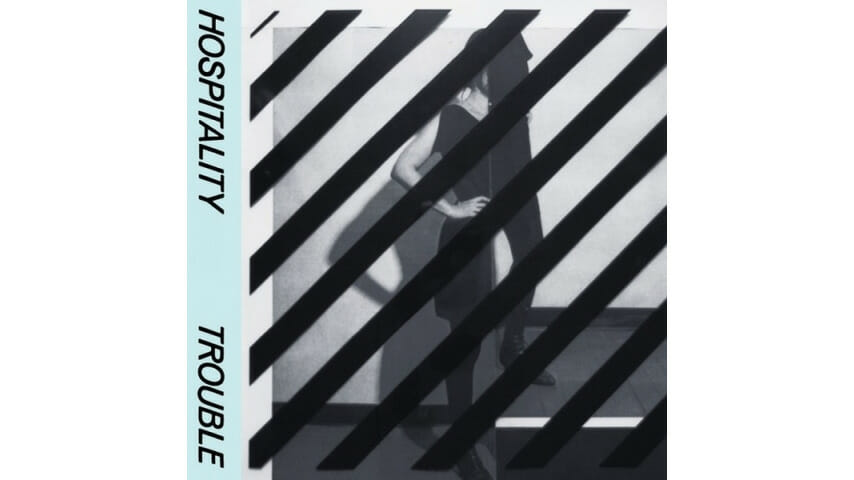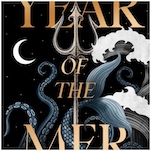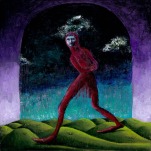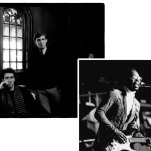Hospitality: Trouble

For the record, Hospitality never sounded that much like Belle & Sebastian. Their sweet-eyed sensibility may conjure up the same impressions as those masters of twee, but from the start, their sound was their own. Their debut was declarative in its sensitivity and sensitive with its declarations. From the sound of it, the band has decided if it means something to them, they’ve got to say what they have to say a little bit louder now. Trouble sounds like Hospitality showing how the addition of a little more edge and disparity to their sound makes them no less inhospitable.
If you paid attention to tracks from their debut like “The Birthday,” you could see Trouble on the horizon. It’s that song’s specter which enthrones itself throughout most of this album’s sound. Their debut’s songs were polo-shirted and bespectacled, and so are these ones, but now they’re sheltering themselves against the cold with Doc Martens and faux-leather jackets.
Frontwoman Amber Papini doesn’t think she’s Patti Smith, but she’s not about to get left in the library either. Elvis Costello wore glasses and suits during every show but had the credibility of a liberty-spiked punk when it came to cataloging angst. This album rolls its eyes at music suggestive of partygoers and pure-id behavior but hints it’s not opposed to getting involved in that kind of action every once in a while.
-

-

-

-

-

-

-

-

-

-

-

-

-

-

-

-

-

-

-

-

-

-

-

-

-

-

-

-

-

-

-

-

-

-

-

-

-

-

-

-








































